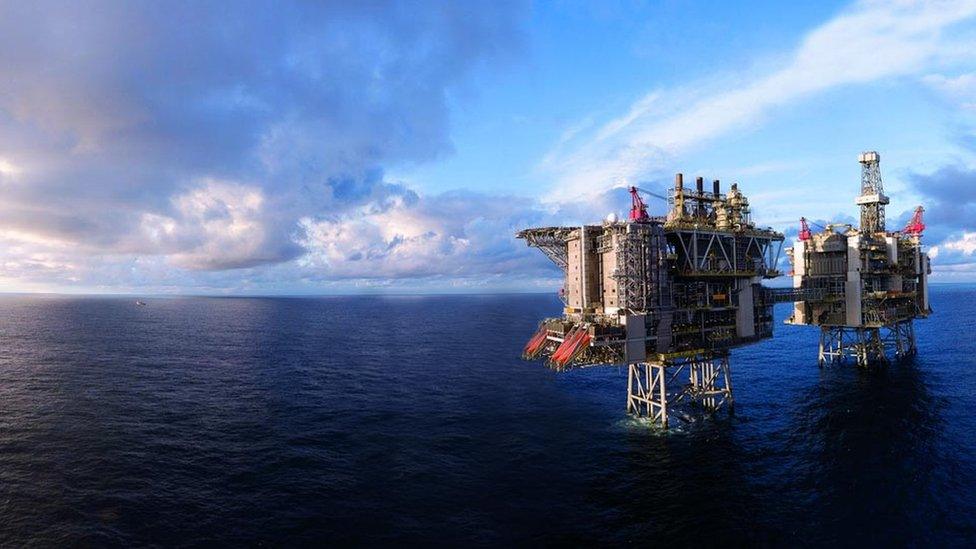UK government will not fight Rosebank oil field legal challenge
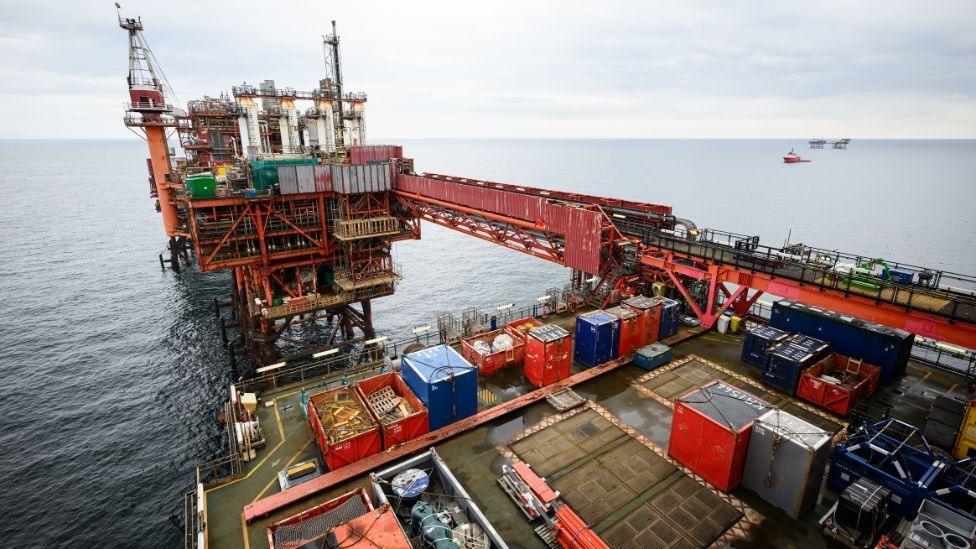
Environmental campaigners have welcomed the government's decision
- Published
The UK government will not fight a legal challenge against the decision to grant consent to drill in untapped oil and gas fields off Shetland and Aberdeen.
Greenpeace and Uplift jointly brought judicial reviews to stop the development of the Rosebank and Jackdaw fields.
It comes after the Supreme Court ruled that a UK council should have considered the climate impact of new oil wells – setting a precedent for all regulators.
The government's decision does not mean the licences for Jackdaw and Rosebank have been withdrawn.
But if the judicial review backs the environmental groups, operators would need to resubmit environmental assessments.
This would create more delay and additional costs for Rosebank's owners, Equinor and Ithaca Energy, and Jackdaw's owner, Shell.
The UK government has pledged that oil and gas would play an important role in the economy "for decades to come" as the UK transitions to clean energy.
It is planning to consult later this year on its manifesto position not to issue new oil and gas licences to explore new fields.
Energy Minister Michael Shanks said: “We will consult at pace on new guidance that takes into account the Supreme Court’s ruling on environmental impact assessments, to enable the industry to plan, secure jobs, and invest in our economy.”
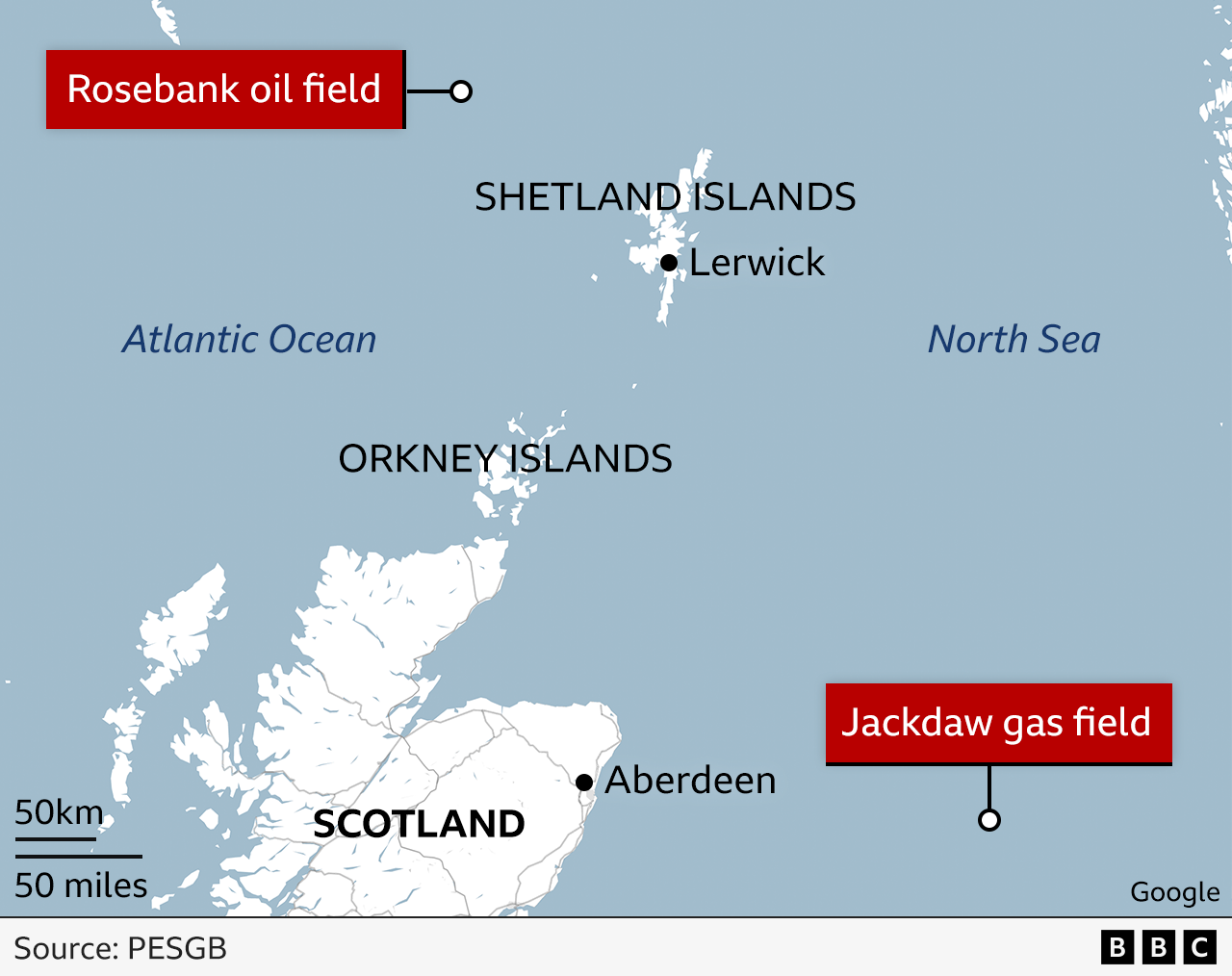
Environmental groups welcomed the government’s decision.
Greenpeace said the licences should not have been granted without being "properly assessed" for their climate impact.
Mel Evans, Greenpeace UK climate team leader, said: “The two new fields combined would generate a vast amount of emissions while doing nothing to lower energy bills.
"The only real winners from giving them the greenlight would be multi-billion-pound oil giants.”
Tessa Khan, executive director of Uplift, said it was a “common sense” decision.
She told BBC Radio Scotland: "Rosebank is a terrible proposition economically, from an energy-security perspective and environmentally for the UK public.
"No government should be prepared to approve a project like that."
Net zero ambitions
The government's decision comes after the Supreme Court ruled in June that the way fossil fuels are used by consumers – known as Scope 3 emissions – have to be considered when environmental impact assessments are being carried out.
The decision could still be challenged by oil companies.
Industry body Offshore Energies UK urged the government to conduct its consultation “at pace”, warning that uncertainty “further impacts investor confidence”.
A spokesperson added: “We remain absolutely committed to operations in the North Sea that meet the UK's net zero ambitions and support energy security.”

Rosebank has faced opposition from climate campaigners
Rosebank off Shetland, owned by Norwegian energy giant Equinor and British firm Ithaca Energy, is the UK's largest untapped oil field. Consent for drilling there was granted in September last year.
Scotland’s then first minister Humza Yousaf said he was "disappointed" at the decision and accused Downing Street of "climate denial".
Shell’s proposals to develop Jackdaw, east of Aberdeen, were approved in 2022 after initially being rejected on environmental grounds.
Both Equinor and Shell said they would carefully consider the implications of the government’s announcement.
An Equinor spokesperson said: “Rosebank is a vital project for the UK and is bringing benefits in terms of investment, job creation and energy security."
A Shell spokesperson said: “We believe the Jackdaw field remains an important development for the UK, providing fuel to heat 1.4 million homes and supporting energy security, as other older gas fields reach the end of production.”

First things first, this does not mean the end for either Jackdaw or Rosebank, but it is another significant victory for environmental groups.
The key is whether the emissions from consuming the oil and gas produced is considered in environmental impact assessments.
Historically, those Scope 3 emissions were disregarded, but July's Supreme Court ruling changed that.
Now, if the judicial review of two of the most prominent North Sea developments rules in favour of the green lobby, operators will have to resubmit environmental impact assessments to be considered afresh.
The regulators could then stick to their guns and approve it again. But this creates more delay and significant additional costs - which environmentalists hope will make fossil fuels less appealing to investors.

In its draft energy strategy, published last year, the Scottish government confirmed a "presumption against" any new oil and gas exploration.
But First Minister John Swinney said in June that North Sea oil and gas would still be needed "for a period of time" to help the country meet its net-zero emissions target by 2045.
Scotland's acting Energy Secrertary, Gillian Martin, said ministers would carefully consider the UK government announcement.
She noted that offshore oil and gas licensing is reserved to Westminster, but said decisions should be made on a “case by case basis and include rigorous assessments of both climate compatibility and energy security”.
Following the Supreme Court ruling, the government also walked away from a legal challenge against a new coal mine in Cumbria approved under the previous Conservative administration.
Related topics
- Published27 September 2023
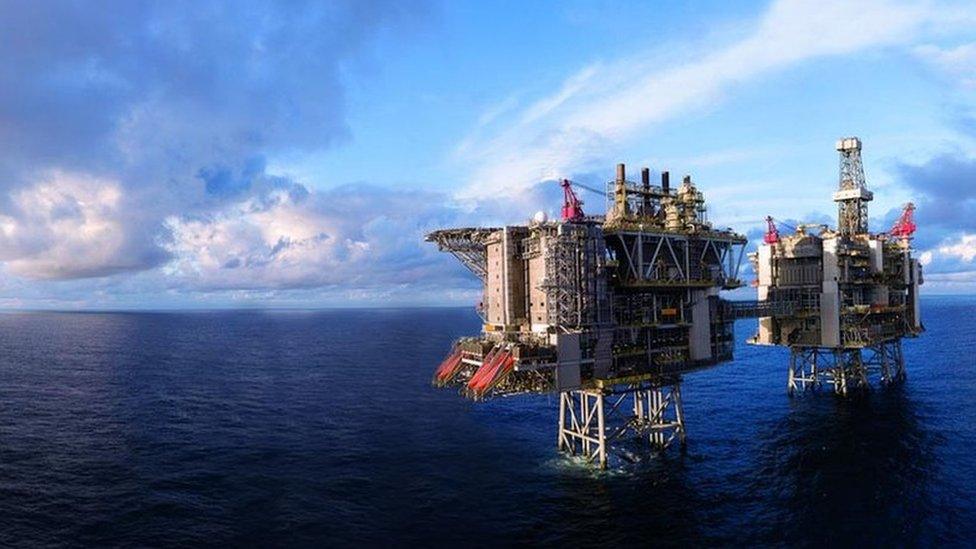
- Published27 September 2023
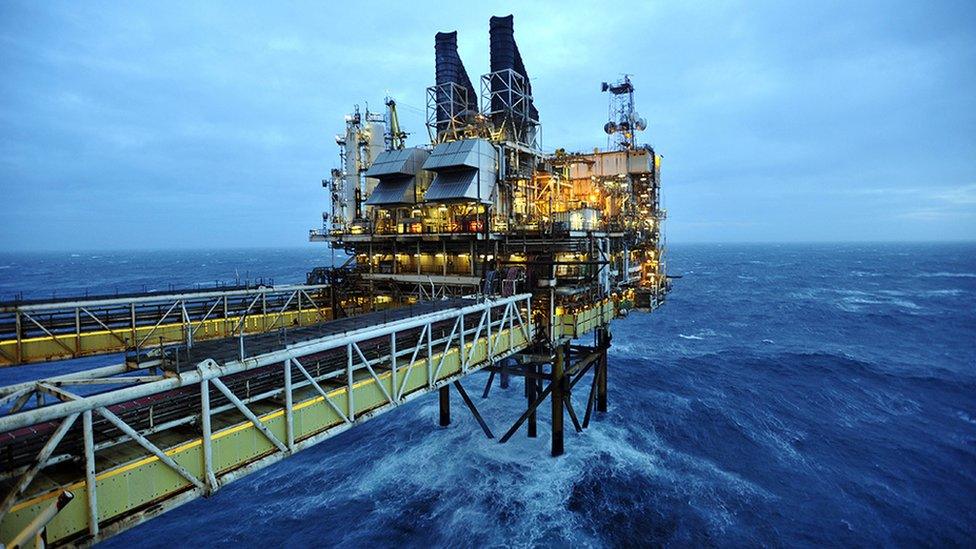
- Published29 July 2023
